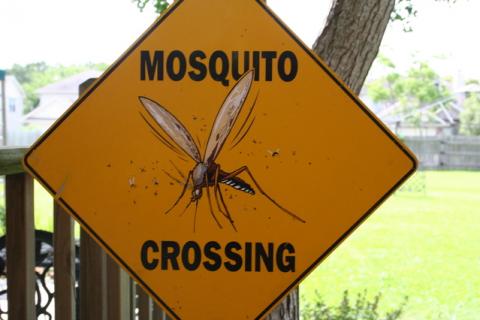
Enjoy summer fun without getting hurt! The next 4 weeks we'll discuss some Tips to Keep You Safe this Summer, from Sun & Heat to Bugs & Burns.
Insects are a part of nature but don't let that ruin your weekend! Here are 9 Tips to Keep you Safe from BUGS:
- Don’t apply perfumes and avoid the use of scented soaps. The sweet scents of soaps and perfumes attract some insects.
- Stay away from stagnant water and heavily wooded areas. Insects, especially mosquitoes, congregate around pools of water. Deer ticks, which carry Lyme disease, are more likely to be in areas with lots of trees and brush.
- Avoid wearing bright clothing. Bright flowery prints also attract insects, including honey bees and hornets.
- Check DEET concentrations on insect repellents before use.Higher concentrations of DEET protect for longer lengths of time. Choose a concentration based on how long you need to protect yourself. Repellents containing DEET should not be used on children younger than six months old and be sure to avoid contact with your mouth and eyes.
- Dress appropriately if you plan to be in a wooded or grassy area.Pants and long sleeves are best, and are an excellent way to limit your skin exposure. Once you’re back inside it’s a good idea to shower. Not only will this wash away the repellent, but it may also wash away any ticks that haven’t yet latched onto your body. You’ll also want to be sure to check your entire body thoroughly for ticks (especially your ears, waist, head, belly button, arms and legs).
- Resist walking barefoot in the grass. Bees can often be on the ground and this will help you avoid being stung. It’s also wise to avoid perfumes and bright colors, as these may attract bees.
- Treat your bites. If you do get bitten and develop a bite that is red or raised try: 1) applying an ice pack for 10-15 minutes 3-4 times a day and 2) taking Benadryl for itching will both provide symptomatic relief from the local insect bite reaction. Bites rarely develop into a skin infection (cellulitis), but this usually takes several days. If there is any question, call your doctor to have it evaluated.
- Know the signs of having a potentially dangerous anaphylactic (rapidly progressing allergic) reaction to a bite. Reactions are most commonly associated with stings by bees, wasps or hornets. Hives, swelling (of the face, eyes, tongue and lips), throat tightness, difficulty breathing, vomiting or feeling faint/lightheaded are all signs of potentially dangerous anaphylaxis, and you should contact your doctor immediately or call 911.
- Protect your pets, too. Your four-legged family members can also get diseases from insects. Make sure to bring and use your pet’s flea and tick repellants.

Add new comment